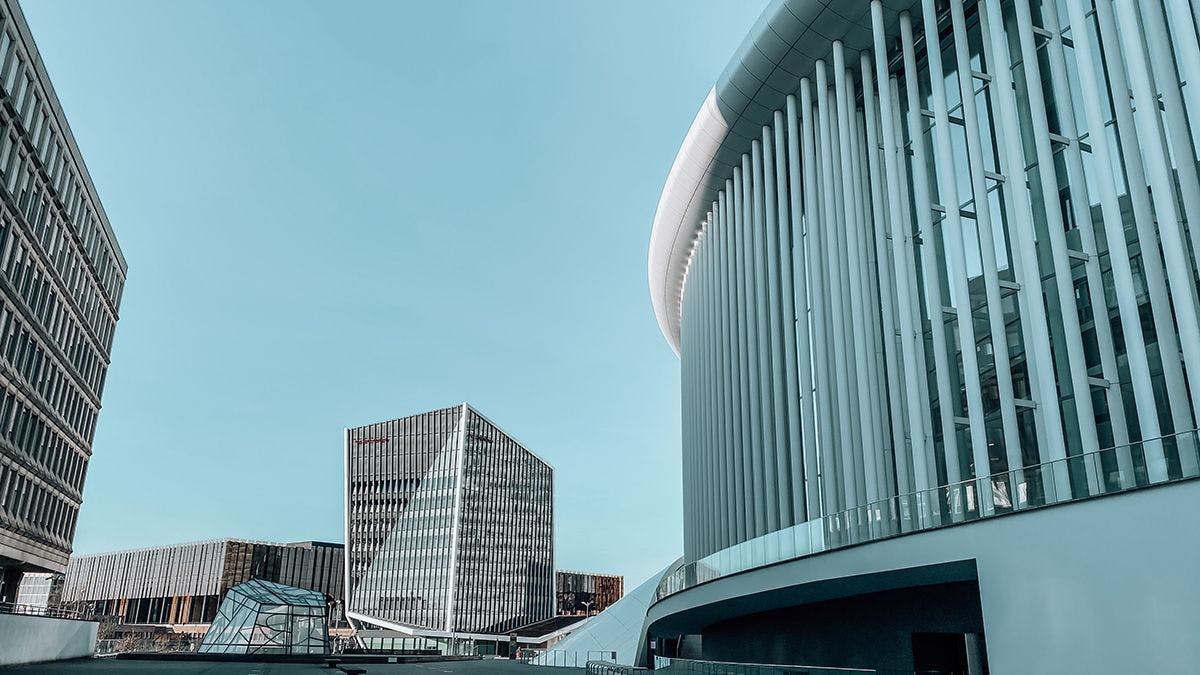"Earning money and spending it": how Chinese expats live in Luxembourg

Why did an entrepreneur from China move to Luxembourg for permanent residence, and why is it easier to do business here than in her home country?

In fact, moving to Luxembourg was our destiny. Initially, we were planning to move to Germany, but then one of my friends intervened. He found out what Luxembourg had to offer: a friendly education system for children, an international environment mixed with locals, and, most importantly for us, a state that supports business development and gives you the chance to build strong connections. So we made that decision.
Why are the Chinese travelling to Europe?
Decades ago, when full-scale migration from China first began, people came to earn money, but now most come to spend it. Many Chinese tourists, students and future workers live in Europe and around the world.
PAccording to official data, in 2022 there were just over 4,000 Chinese expats in Luxembourg, accounting for around 1.4% of all expats in the Duchy. Over the last decade, this number has grown significantly — by 0.8%. Although the percentages may not seem that high, the potential for growth is enormous. Furthermore, the Chinese national community is not the largest in Luxembourg.
The "old" emigrants, who had already settled here, came to open restaurants and diversify Mediterranean cuisine. But when the Bank of China and other Chinese giants began to expand abroad, more and more workers found themselves in Europe.
Many Chinese people now work in the financial sector and in technology. China welcomes these changes just as it welcomes tourists to its country. As long as you can feed yourself and your family, do whatever you want.
Salaries in Europe are high, while the standard of living in China remains relatively low for most people. However, many are leaving permanently, and they have their reasons.
Where do serial entrepreneurs come from?
As in the rest of the world, inequality reigns supreme in China. There are insanely rich people, such as the owner of Alibaba and other companies, and then there are ordinary people.
Wealth in China is hereditary, passed down and multiplied through generations. By the standards of truly wealthy Chinese, our family is merely middle class.
My father was never a businessman. He is a policeman, and my desire to start companies is completely incomprehensible to him. In this respect, I followed in my grandfather's footsteps.
Almost a century ago, he had a small company in China that sold seeds — vegetables, fruits, flowers. Even though it was a local business, he was still able to feed his family during difficult times, and they had four children, mind you. I have always been amazed by his story: the business helped them stay afloat and have something to fall back on.
It was decided! Right after university, my husband and I decided to open a restaurant. It was a small Chinese food delivery company in London. He was the chef, and I invested money and energy. After that business, we bought a building in Greece and turned it into an Airbnb hotel with 11 apartments. That was our first big success.
You could say that I am a serial entrepreneur. Right now, I am passionate about innovative business in Luxembourg. My team and I are creating a start-up in the field of local tourism, based on a European idea.
Why we chose Luxembourg for our new project
Multicultural space
Less intense competition
When you are still at school, you have a lot of homework, extracurricular activities, and very strict monitoring of your academic performance. Here, children are free as soon as the bell rings at the end of the school day. In China, when you finish school, you are still there, competing with other young workers. They are all highly qualified and educated. Therefore, emigration, in my opinion, is one of the best ways to avoid this endless race for success.
Building a business in Europe is not the same as building one in China. Here, the contract is the basis of everything: both a guarantee and an agreement.
In China, we build our business primarily on trust. Before you start working with someone, you have to thoroughly check them out. You need to find out everything about their family, past, education, social circle, and connections. You need to build human relationships — this is important in our culture.
How to preserve your native culture while living abroad
There is no large Chinese community in Luxembourg, not even a Chinatown. And our culturally ingrained rivalry often divides the national community. Of course, we are close to some people, but in my case, it's different. I have been in Europe since the 2000s, so my circle of friends consists of Europeans. In business terms, this is more effective. I also enjoy communicating with people from different parts of the world.
When the holidays roll around, you start to miss your national traditions, your family, your homeland. I think this feeling is familiar to expats from any country. Your family is far away, as are all your childhood friends.
A national community has been established around the Chinese Chamber of Commerce in Luxembourg, and they organise some events for expats. In my opinion, the most challenging aspect of emigration is rebuilding your entire social circle in a new place. For example, my daughter is now 17 years old, and she is an introvert. We have moved around a lot, and it has been difficult for her to constantly make new friends. We are currently working on this.
I moved with my son and daughter, so we spend holidays, especially national ones, together. My parents recently moved to Greece. It happened very smoothly. When the pandemic started, they came to stay for a while, but ended up staying for good. Of course, my grandmother, aunts and uncles still live in China.
We try to maintain ties with them and with national traditions. To this end, we have developed two simple rules.
We speak our native language more at home.
We celebrate all major national holidays.
In general, there are many joyful celebrations in China. For example, we have the Chunhyang Festival, during which we climb a mountain and eat a special treat made of rice and meat at the top.
Very tasty! In our culture, many holidays are associated with traditional foods.
If the English always ask about the weather when they meet, the Chinese always ask if you are hungry.
If there isn't a Chinese restaurant in at least one place on the map, it means one will open there soon. With around a million Chinese expats travelling the world, the chances are high.
We have one of the richest culinary traditions in the world. Each region has its own special recipes, flavours and seasonings.
In London, for example, there is an entire street where they serve chicken in soy sauce and crispy pork belly. Of course, there are also many restaurants in Luxembourg. There are even two shops selling traditional Chinese cooking ingredients: one is located in the city centre and one is in Esch-sur-Alzette.
How we decided to stay in Luxembourg forever
Luxembourg is the perfect place for me and my family. Yes, many people say that the country is small, but is that a bad thing?
I am in business, so for me, "small" means that it is easier to control and easier to build connections. Half an hour from the capital and you are in Germany, an hour (with the famous traffic jams) and you are in France. What other country can offer such accessibility?
Nowadays, air travel is very cheap, and the local airport gives you virtually unlimited opportunities for travel. An hour's flight and I'm in London, closing another deal over a cup of tea.
Many of my friends, especially those from Greece, constantly ask me: "Vicky, how could you trade Greece, where the sun shines all year round, for cloudy Luxembourg?" But what should you value more as a businessperson: sunshine or opportunities? Darling, you can enjoy Luxembourg's weather at any time — just hop on a plane and fly to the beach!))